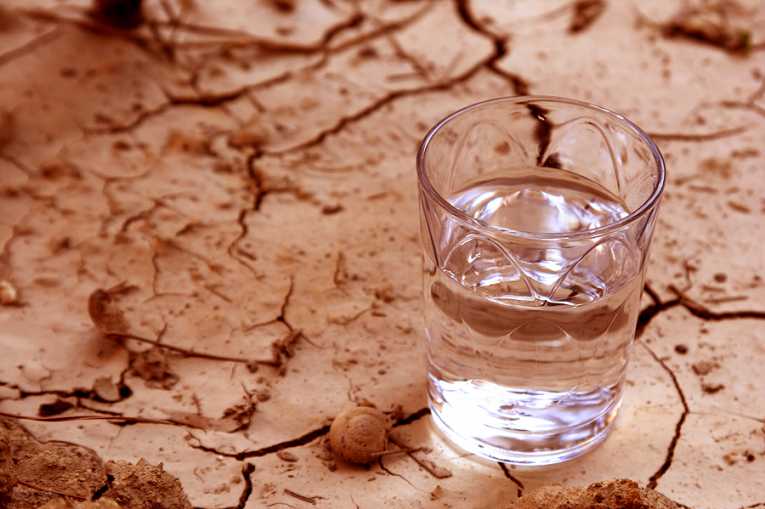In drought-stricken Texas, water shortages are impacting its burgeoning hydrofracking industry. Cities across northern Texas, grappling with water shortages, are limiting water provided to hydrofracking operations.
Arlington is considering rate increases, and both Grand Prairie and Midland have stopped selling water to hydrofracking operations altogether. Two major operators, the Canadian firms Encana and Trican Well Service Ltd, have acknowledged the issue: the former is investing millions in water reuse technology because the latter has been asked by customers to stop using freshwater for extraction. In what is arguably the understatement of the year, the CEO of Trican states: "It's [water supply] has been an issue for most of 2011."
Water utilities and regulators have put restrictions on residential, commercial, and agricultural water use, and now they are turning to hydrofracking operations. But the drought has laid bare the fatal flaw in current Texas water law: though the state enacted regulations requiring operators to disclose the chemical contents of fracking fluids, operators utilizing wells for extraction are exempt from reporting how much water they use.
The result: regulators have no idea how much and where the water is being used. It was reported here that in one Texas county nearly 90% of groundwater use is exempt from reporting requirements. In short, Texas has made strides to protect water quality, not water quantity, which may be the most critical issue the long run: a recent report indicates that the industry currently uses 12b gallons of water per year and it is expected to climb to 39b by 2030.
Regulators are relying on operators to voluntarily report water use, but the effectiveness of such a scheme is, at best, mediocre. The law needs to change. However, there is a diamond in the rough. One regulator, the Upper Trinity Groundwater Conservation District, has implemented a metering program for oil and gas wells and, according to the general manager, it has gone well. Legislators could look to this program as a model.
But the real challenge is regulating water use after its measured. Putting caps on water use and allocating the resource will likely be the most critical piece of new regulations. This issue will need to be taken up at the state level, as local politics would render allocation policy by district regulators very difficult.
Removing the legal exemptions will also compel operators to invest in water reuse technology. Current water supplies are insufficient to meet demand today; it's clear water reuse will be the only way to meet demand from the hydrofracking sector in 2030. Texas has been a leader in terms of minimizing water quality impacts from fracking. But the state's environmental and economic future may hinge on its ability to deal with the other side of the issue: water quantity.
Top Image Credit: © Eminozkan










